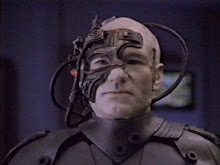
The mayor of Detroit, Mich., has hit the nation with an unemployment shocker.
Despite an official rate of 27 percent, the city's actual unemployment rate is closer to 50 percent, according to Detroit Mayor Dave Bing.
He said the higher rate is more accurate after taking into account those who have given up finding a job and those working fewer hours than they want.
The news comes after a recent Red Alert report indicating that many of America's inner cities, including Detroit, have become "dead zones" of predominately Democratic-voting African-American ghettos of poverty.
"It's a reality that has become politically incorrect to discuss in an era where President Obama occupies the White House and the Democratic Party controls Congress.
The news comes after a recent Red Alert report indicating that many of America's inner cities, including Detroit, have become "dead zones" of predominately Democratic-voting African-American ghettos of poverty.
"It's a reality that has become politically incorrect to discuss in an era where President Obama occupies the White House and the Democratic Party controls Congress," Corsi wrote.
The Bureau of Labor Statistics estimated that for the year ending in September, Michigan's official unemployment rate was 12.6 percent, according to the Detroit News.
Yet, using the broadest definition of unemployment, the state's unemployment was 20.9 percent, or 66 percent higher than the official rate.
The unemployment situation is particularly severe in Detroit, where the official BLS unemployment rate was 27 percent, while the broader measure pushed the city's unemployment rate to 44.8 percent.
Detroit, an inner city 'dead zone'
The Times Online noted a grim reality in Detroit in which piles of unburied bodies tell the story of a "city in despair."
"The abandoned corpses, in white body bags with number tags tied to each toe, lie one above the other on steel racks inside a giant freezer in Detroit's central mortuary, like discarded shoes in the back of a wardrobe," Tim Reid wrote in the article.
"Some have lain here for years, but in the recent months the number of unclaimed bodies has reached a record high. For in this city that once symbolized the American dream many cannot even afford to bury their dead."
Gone from Detroit is the employment power of the Big Three automakers – GM, Ford and Chrysler – while the murder rate is soaring, the school system is in receivership, and the city treasury is $300 million short of the funds needed to provide even the most basic city services, such as garbage collection.
"Thousands of houses are abandoned, roofs ripped off, windows smashed," Reid wrote. "Block after block of shipping districts lie boarded up."
Despite President Obama's rapidly sinking poll numbers, more than 90 percent of African-Americans still support his presidency.
Michigan votes Democratic
Michigan's Gov. Jennifer M. Granholm is a Democrat, as are the state's two U.S. senators, Debbie Stabenow and Carl Levin.
"Yet, cities like Detroit inevitably vote Democratic largely because the cities have become dependent upon federal social-welfare programs to survive," Corsi wrote. "Poverty voters continue to identify their interests with Democrats like President Obama who remain openly committed to a socialist redistribution of income in the United States."
He continued, "It should be obvious government social-welfare programs do not work."
After the trillions of dollars spent since 1964 to fight poverty, Corsi said it is evident that money alone does not solve poverty.
A permanent underclass?
Statistics generated by the U.S. government have shown since the Johnson administration that poverty in America is disproportionately an African-American problem of inner cities, Red Alert reported.
The data also show that Hispanics are now joining African-Americans to disproportionately suffer poverty in the U.S. cities throughout the nation where immigrants, both legal and illegal, have settled to live.
"Undoubtedly," Corsi wrote, "racial discrimination historically has played a major role in explaining why African-Americans and Hispanics suffer disproportionately poverty in America. Still, today racial discrimination in the employment setting is against the law and, in many instances, criminal behavior."
He said the question is whether U.S. poverty policy can ameliorate the chronic inner-city poverty experienced since the 1920s by African-Americans, and more recently by Hispanics.
Losing ground
In 1984, political scientist Charles Murray published "Losing Ground," a book sharply critical of Lyndon Johnson's War on Poverty that argued the U.S. should scrap all social-welfare programs.
Murray's argument was that social-welfare programs by their very nature created a "poverty culture," especially in African-American families, where the welfare state was actually encouraging the breakup of families by implementing qualifying rules detrimental to family development as conditions for receiving welfare.
He took the opposite approach, arguing that all federal entitlement "transfer programs" to the poor should be terminated for working-aged people immediately, including Medicare, food stamps, unemployment insurance, workers' compensation, subsidized housing, disability insurance, as well as a myriad of others.
Murray argued this not from a lack of sympathy with the poor, but from an intellectual conviction that the only way to solve poverty was to leave the poor with no recourse except for the job market, family members and friends, as well as charity and whatever aid for the poor or unemployed the states decided to provide.
















